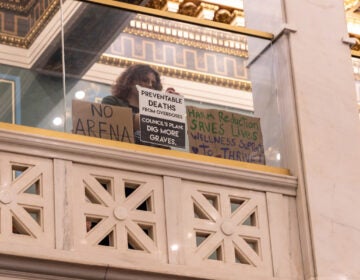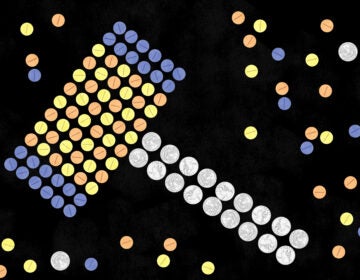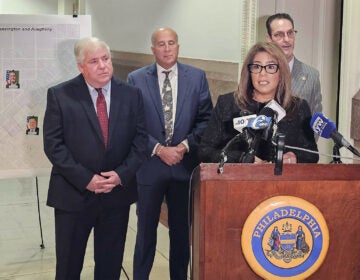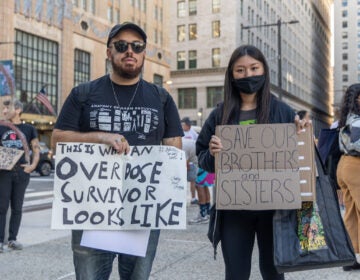To veto or not? Philly Mayor Jim Kenney unhappy with City Council injection site ban
Kenney wouldn’t commit to vetoing legislation that would ban the sites in most of Philadelphia. It passed with a veto-proof margin.
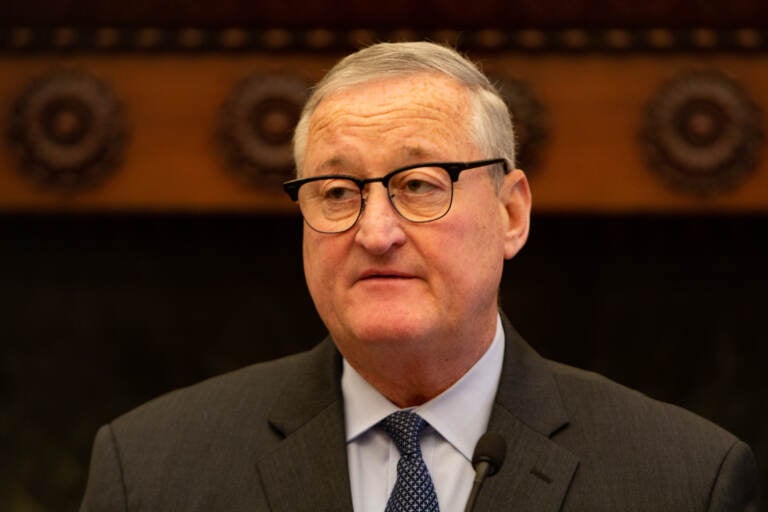
Philadelphia Mayor Jim Kenney. (Kimberly Paynter/WHYY)
From Philly and the Pa. suburbs to South Jersey and Delaware, what would you like WHYY News to cover? Let us know!
Mayor Jim Kenney could veto City Council’s bill that would ban supervised injection sites in most of Philadelphia, but he admits it’s a battle he cannot win.
The ban passed in a 13-1 vote last week. It takes 12 votes from council members to override a potential veto.
Despite council opposition, Kenney said the supervised injection sites are a way to stop overdose deaths that have plagued the city.
“If you really want to say that you want to fix this problem or address this problem, then address it, and stop trying to put your head in the sand and say this doesn’t work because it works,” he said Tuesday morning.
Kenney pointed to a list of other places where such sites are making headway.
“It works in New York. It works in Toronto. It works in Vancouver. It works in Europe. It works everywhere and we can make it safe and make it work,” he said.
“I’m out of here in three-and-a-half months if they want. If council wants to continue to avoid this and resist it, it’s fine, but it means you’re gonna have people dying as a result of it.”
One of the suggested locations for supervised injection is in the area of Kensington and Allegheny, or K&A. The intersection has become one of the city’s worst, if not the worst, for overdoses. But Kenney says even if the sites were approved, nothing would change for residents immediately.
“There’s gonna be people injecting on the street. There’s going to be people throwing needles on the street. If you want to get needles off the street and stop people injecting in public, put them in a place where there’s medical professionals that can help with their situation.”
The mayor did not say if he would make a decision to veto or not in time for this week’s council session. He could veto the bill or allow it to become law without his signature.
He has 10 days from Sept. 14 to make his decision.
If you or someone you know is struggling with substance use, SAMHSA’s National Helpline is a free, confidential, 24-hour hotline that offers referrals to local treatment facilities, support groups, and community-based organizations. Call 1-800-662-HELP for more information.

Get daily updates from WHYY News!
WHYY is your source for fact-based, in-depth journalism and information. As a nonprofit organization, we rely on financial support from readers like you. Please give today.



